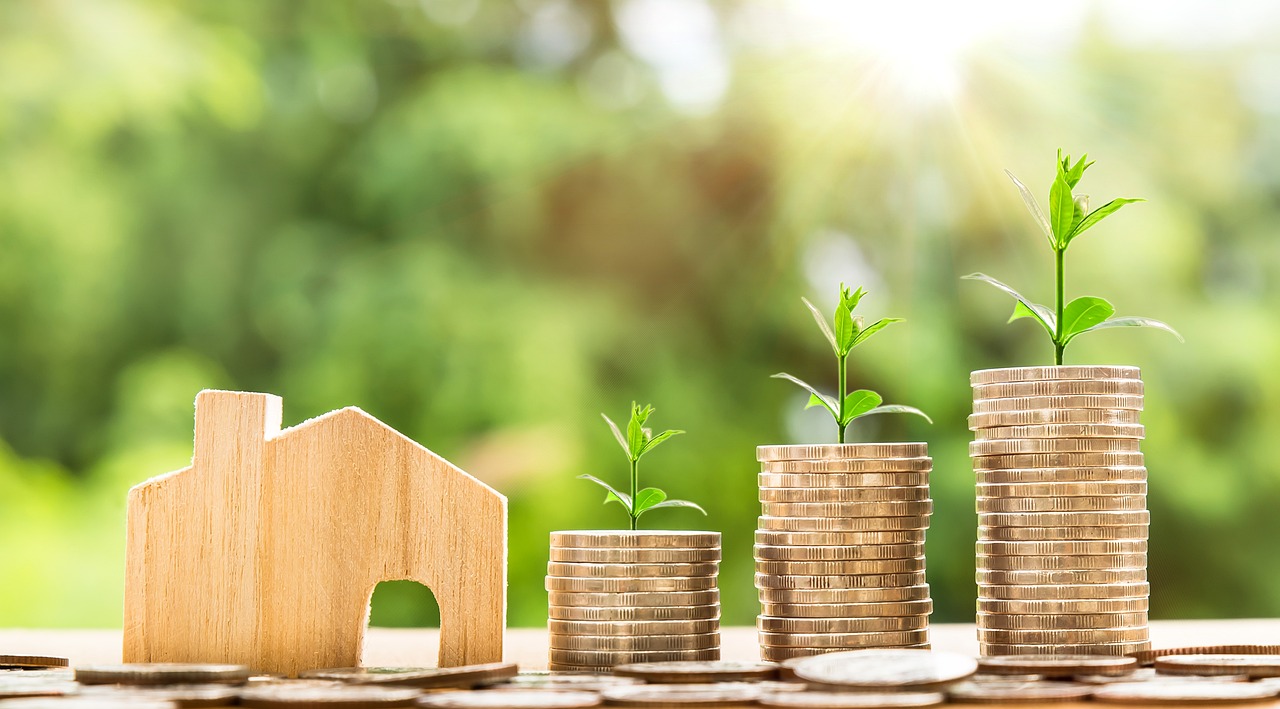The real estate sector of the US economy has consistently increased in value in the last three decades, making it a viable market for investors. While many people are waiting for a downturn to invest in the market, other optimistic people are going all in.
The projection that the market will continue to rise in the next decade has made many prospective real estate investors and homeowners curious as to why the real estate sector of the US economy continues to grow amidst many economic challenges.
This article discusses the factors behind the growth of the US real estate sector. By the time you’re done reading, you’ll decide if it’s the right time to purchase that property on your wishlist. Let’s get started!
The Real Estate Sector of the United States
The real estate sector is a major contributor to the US economy. In fact, it contributed 16.9% to the US economy in 2021. That’s a massive contribution from a single sector. Properties in the US are rising in value on a daily basis. The median price of a home is currently $406,074. And there’s a projection that it will go beyond that in the coming years.
The US real estate sector is a pool of wealth building opportunities. So, whether you’re an investor or a potential homeowner, you have a lot to gain by investing in US real estate.
States like Florida, South Carolina and Texas are fast-growing to meet up with hot markets like Massachusetts, New York, Hawaii, etc.
If you’re wondering why there’s all this surge in the US real estate market, let’s look at the reasons.
6 Reasons Why the Real Estate Sector of the US Economy is Growing
The US is a world leader in a lot of things, and the real estate sector is one of them. Here are the main reasons the US real estate sector has continued to grow, and it’s not likely to stop anytime soon:

1. Demand and Supply for Real Estate
Demand and supply remain the most important factors in real estate worldwide, and the US market isn’t left out. People from all over the world are moving to the US for greener pastures. Some are moving for their education; others are moving for medical care, better jobs, or for other trivial reasons. However, the most important thing is that the US has built a working system that everyone wants to be a part of.
The migration of these people to the US results in higher demand for houses, retail stores, hotels, and many others. The economy has to adjust to meet the increased population and, consequently, housing demands. This spike in demand leads to an increase in the prices of homes and every real estate property in the US. To meet the demand, more homes and properties are being built. All these can only result in one thing – the continuous growth of the US real estate sector and eventually the entire US economy.
2. Economic Growth
The US, with a GDP of US$23.0 trillion, has the largest economy in the world. What this means is, good average wages, a low unemployment rate, a stable price of goods and services, and, of course, more wealthy people. The demand for real estate strongly depends on the income of the population. With a stable economy, US citizens have various means of making more income. This results in them having more money to spend, and, of course, housing is a basic necessity. The more money people have, the more they’ll be able to afford real estate properties.
The real estate sector of the US economy continues to grow because people in the country make enough income and there is a consistent demand for real estate. The higher the demand, the greater the need to develop more properties and the more properties are built, the larger the real estate sector continues to grow.
3. Employment growth
Employment growth is another factor that causes the real estate sector of an economy to grow. You might be asking, what’s the relationship between employment and real estate? Well, remember, the more people get employed, the more money they have to spend. Employment growth results in income growth for the average American, and that eventually leads to the demand for homes, office spaces, and other real estate properties.
Since 1948, the US has maintained an average employment growth rate of 59.22 percent. That’s massive, especially when we consider that the unemployment rate sits at a really low margin of 3.7 percent. While the unemployment rate doesn’t really show the economic conditions of the people, the US having the largest economy in the world shows how well off its citizens are when compared to other parts of the world.
4. Population Growth
US population growth is another major reason why the real estate sector of the US economy continues to grow. The US population has grown by a minimum of one million since 1937. However, this population growth is driven by the high level of immigration in the US. But one thing remains true. The greater the population, the greater the demand for homes and other real estate properties.
The US real estate sector will continue to grow as long as its population keeps growing. And of course, the economy isn’t left out either. The people migrating to the US are also moving with their own resources, which they’d invest in the US market. This results in economic growth, amidst many other things.
5. Favorable Government Policies
The government plays a huge role in the growth and development of any sector of the economy. The US government has policies and regulations that control real estate transactions in the state. Important factors like interest rates, taxes, tariffs, and incentives are what the government uses to control the real estate sector.
The higher the interest rates, and of course, mortgage rates, the more skeptical people will be about taking loans to buy houses. However, with interest rates in the US being between 3% and 4%, people can easily afford to buy homes and other real estate properties. The government also uses tax breaks, low corporation tasks, and low income tariffs to encourage people to invest in the real estate sector.
6. Investments from Foreigners
The US is a viable investment market. With its stable economy and consistent all-round growth, people from all over the world have trust in the US market. As a result, foreigners are making investments in all sectors of the US economy, especially in the real estate sector. Even investments in other sectors other than real estate eventually rub off on the real estate sector. If you’re wondering why, let’s look at it this way.
When foreigners invest in, let’s say, the agricultural sector of your country, they bring all their resources to ensure that investment yields results. The resources here refer to cash, technology, and machinery, and, of course, human capital. Now, these investments in machinery, technology, and human capital won’t exist in a vacuum. They need houses, office spaces, farm lands, construction sites, and all that. That’s how investment in other sectors rubs off on the real estate sector.
The US government understands this strategy very well. That’s why it uses low tariffs, low or no taxes, low interest rates, and other incentives to lure investors from other parts of the world. And what does this mean for the US economy? Every sector of the economy experiences growth and development.
Also read:
- 10 Best Countries for Doing Business in 2022
- How Would the Economy of Canada Be Likely Characterized?
How Does the Real Estate Sector Affect the US Economy?
It’s now clear that the real estate sector plays an integral role in the growth of the US economy. But the question is, how does it do it? In the US, residential and commercial real estate provide homes, office spaces, manufacturing and retail spaces, and all these create jobs. The national association of Realtors in the US also estimates that every home sale generates two jobs. That’s 2,000 jobs for every 1,000 homes sold in the US.
Rising home prices, more jobs, and eventually increased income result in more spending on real estate by the masses. The increase in consumer spending leads to an increase in the economic growth of the nation. Real estate makes up a large portion of individual and business wealth across various sectors of the US economy.
Conclusion
As long as every other sector in the US economy continues to grow, the real estate sector will never be left behind. Population growth, favorable government policies, and, of course, migration will continue to result in high demand for US properties. Moreover, the more stability and rewards the US economy gives to investors, the more people will be attracted to investing in the market.
I hope you’ve learned from this article why the real estate sector of the US economy continues to grow. Do you think it’s the right time to buy that home or invest in that property? While you’re contemplating, I’d like you to understand that one investment that rarely depreciates is land, and real estate is an outgrowth of land.







